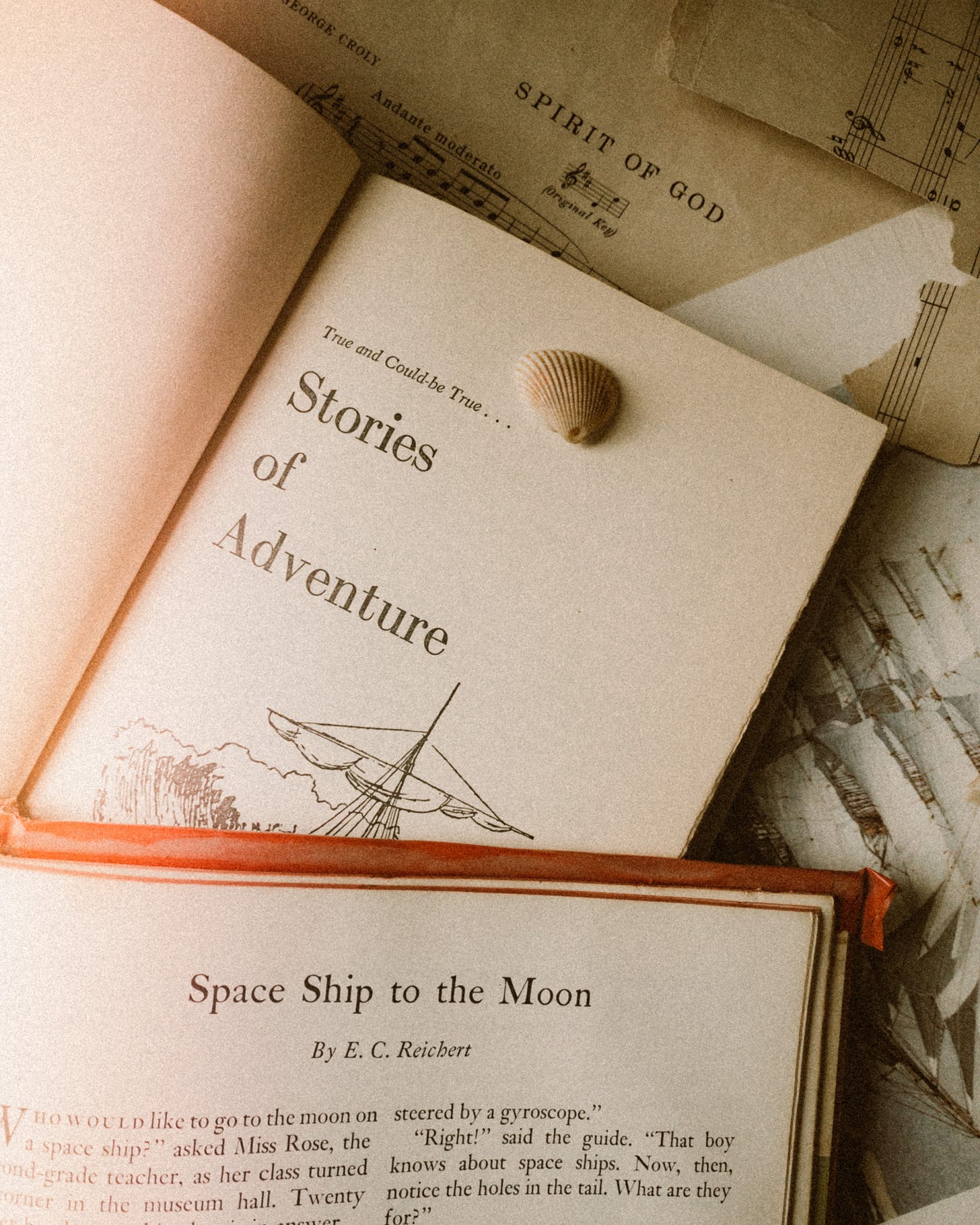The Surprising Power of Origin Stories
One of the most important stories you tell as a writer is your own.
Writers love to tell stories. One of the most important stories you tell as a writer is your own. That’s why this issue of our newsletter is about origin stories - what they are and why they are useful.
What’s an origin story and why do you need one?
Fancy Comma, LLC’s Kevin Ho writes about the importance of origin stories:
Everyone has to start somewhere in their professional life, whether that is as a solo entrepreneur (solopreneur) or within a company or organization. The past is prologue; it can say a lot on how you got to where you are today and what qualifies you to offer the services you do. Although most people mostly pay attention to the parts of your origin story that are most immediate to your current business, there are some who are more curious and may feel inspired by some important lessons your origin story might have to offer.
An origin story isn’t just a story — it’s also part of your brand as a solopreneur or business. Your origin story tells people about your relevant (or not-so-relevant) background and experience that brought you to your current career today.
Origin stories are useful and interesting. People can read them and gain useful career insights, or simply learn more about you as an entrepreneur. If you have a unique path to your current career, you can turn this into a differentiator for your business by outlining what makes your experiences and training different from others in your industry.
In a field like science journalism, a freelance science writer can come from a variety of backgrounds. One might be a scientist that starts writing articles about scientific topics or a journalist who translates the sometimes dense content of scientific research into a digestible format.
When writing your origin story, remember that if you don’t tell the story yourself, you might find that someone else has told it for you. To write an origin story, you’ll want to figure out what the important events or achievements in your life and career are, and thread them all together in a narrative that can serve as a support for your business and brand.
An origin story can be divided into background, process leading up to you becoming a freelance science writer, and what you are today. Keep each of these parts succinct, containing only the most essential details needed to communicate your point. You can focus on things like where you got your education or how you were first exposed to science writing in order to draw a line and connect the dots between beginning, middle and end. Make sure you reference in the end what parts in the beginning from your background make you unique and valuable as a freelance science writer.
Our favorite origin stories:
To learn more about origin stories, it’s a good idea to read a few.
Fancy Comma, LLC’s Sheeva Azma wrote her origin story as a personal essay in The Xylom. You can read it here. She also recently discussed her and Fancy Comma’s origin story with science literacy nonprofit STEM-E on their podcast - check it out here.
Marketing professional Teodora Ema Pirciu blogged about her origin story as a freelancer.
Freelance science journalist Yao-Hua Law recently spoke about his start as a science reporter on his podcast, Science Illuminates.
The science journalism nonprofit The Open Notebook has published an entire website featuring origin stories of science writers.
If you’re interested in freelancing but haven’t got your start yet, Sheeva has written a book on getting into freelance science writing. Check it out here.
Links from around the web:
STEM-E is a nonprofit organization dedicated to helping middle and high school students learn more about Science, Technology, Engineering, and Math (STEM) and careers in STEM. STEM-E’s Rachel Glantzberg recently wrote an easy-to-understand explainer about search engine optimization (SEO).
Belle of #BreakThings and Capitol Hill Style writes something we’ve all been feeling in her most recent newsletter: “My brain is mush. My sanity is being held together with duct tape.” She mentions a New York Times article on languishing — which is what we’re all doing at this point in the COVID-19 pandemic: “You may not be depressed, but you’re failing to thrive.”
What’s the role of science jargon in science communication in #SciComm? Steph Paoli wrote an article on our blog recently on the topic. Recently, The New York Times published some insights, too.
The always helpful Science Writing Roundup just published its 40th issue! It’s a great source for science writing events, information, and opportunities.
The Science Literacy Foundation recently shared this article using humor to combat scientific misinformation.
That’s a wrap for this month’s newsletter! Feel free to continue the discussion with us @FancyComma on Twitter and Instagram, or by commenting below. Thanks so much for reading!

